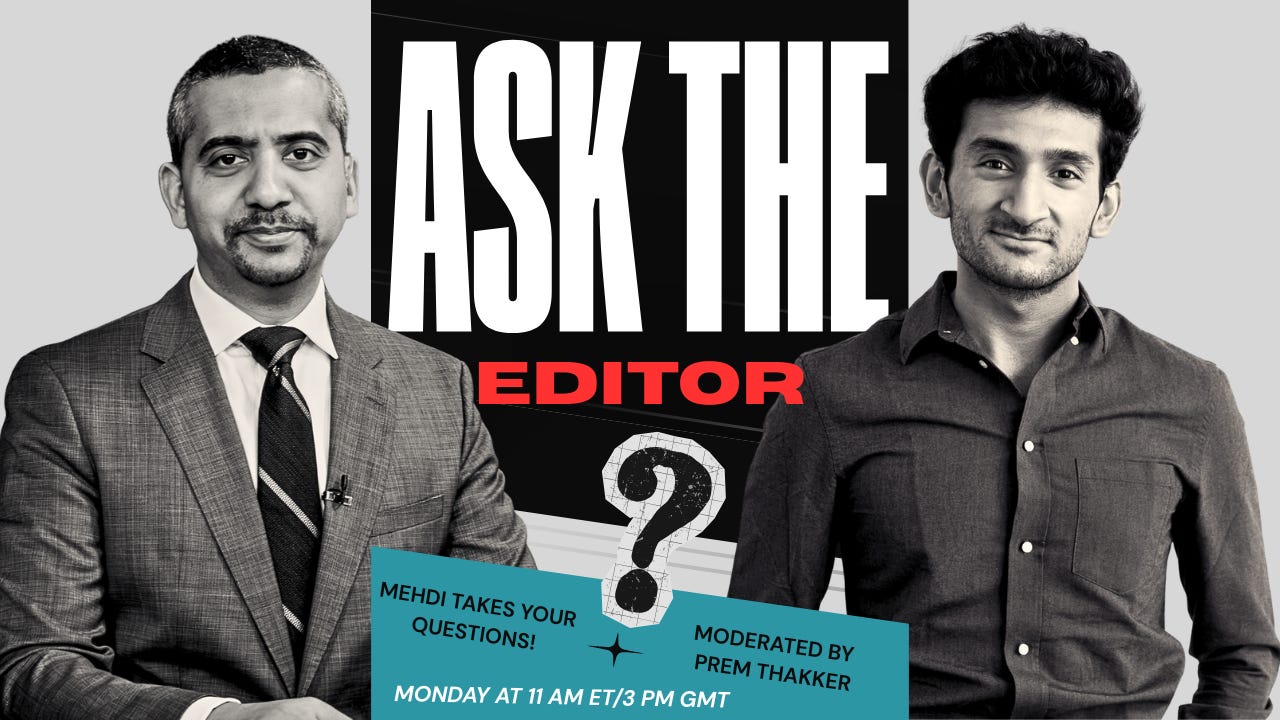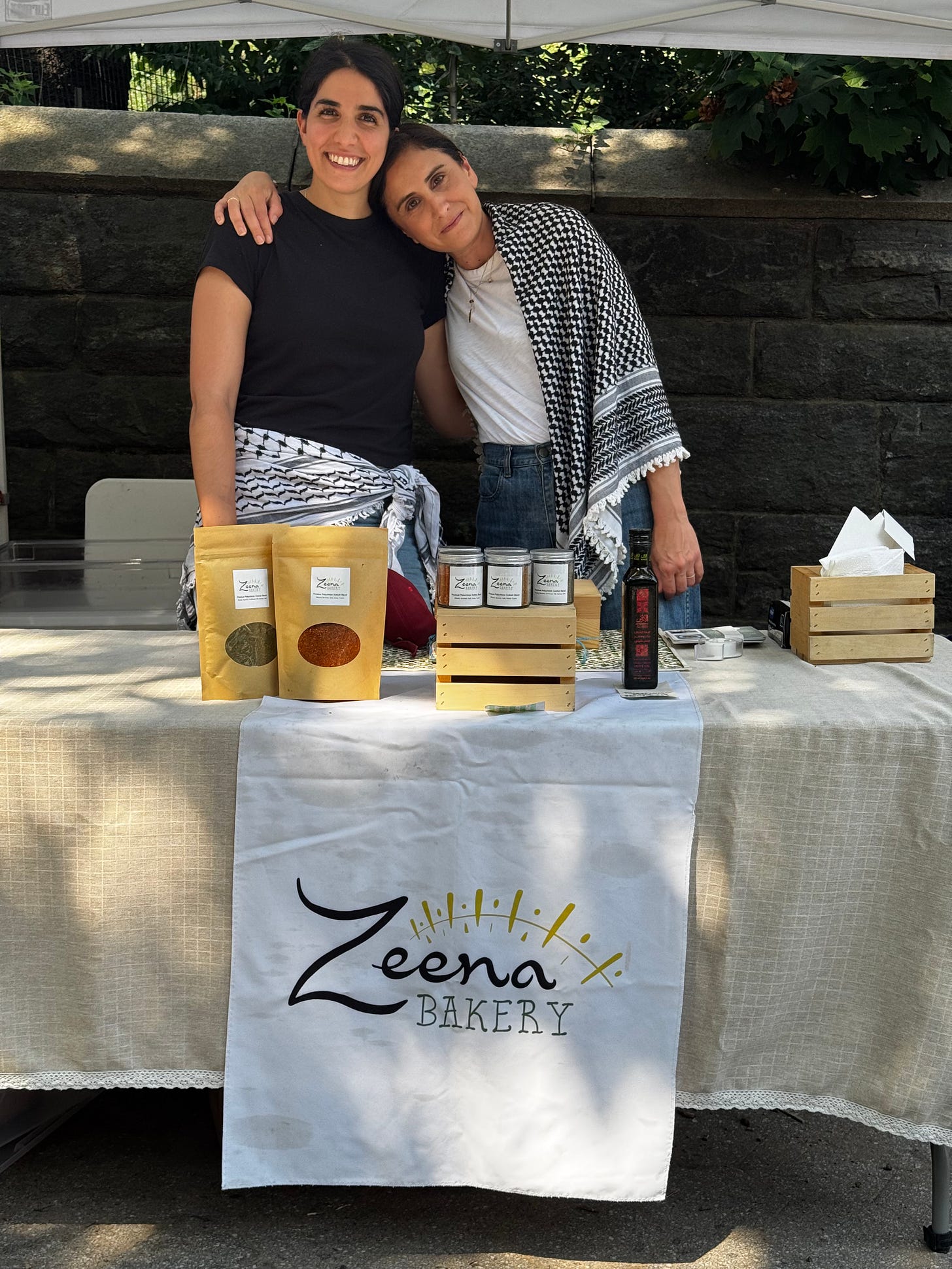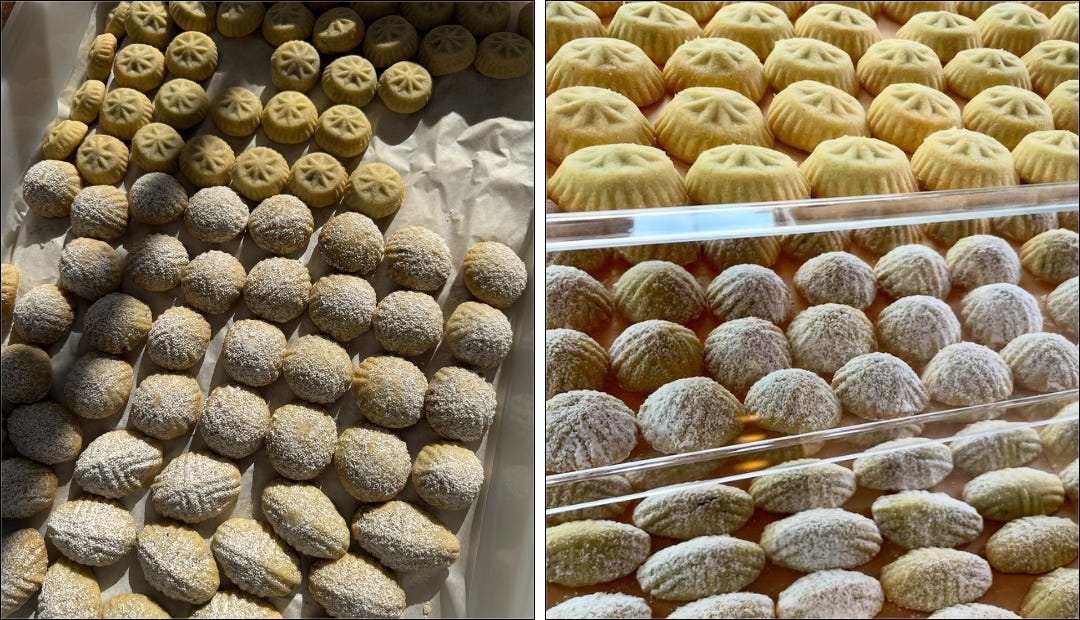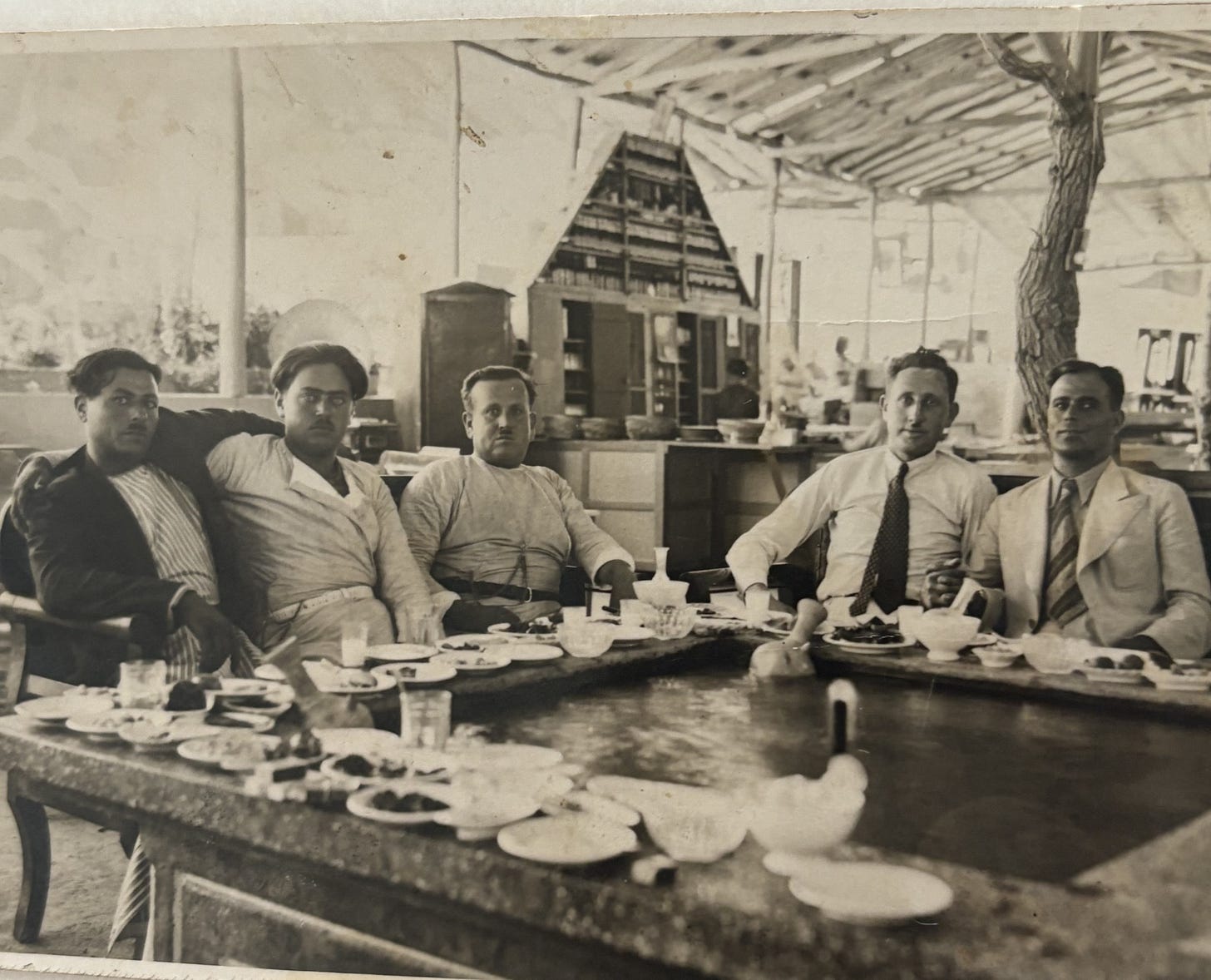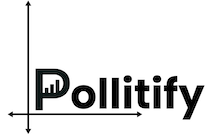
Tools for Progressive People
Pollitify is your one stop source for grass roots activism. We list events near you as well as offering you a suite of software tools for creating and organizing political protests. If reasoning by analogy works for you, you can think of us as Mobilize with the difference that not only are we free but we also offer you the tools for putting on protests not just promoting an event.
Upcoming Events in the Next Week
No Events for Your Query
We're sorry but there weren't any events for your query. Please try broadening your search. Also -- this could be us -- Pollitify is just getting started and, shocking, I know, there can at times be ahem software bugs. We are also still tirelessly scouring the Internet for more sources of events. Please check back later this week when you will be able to submit your own events.
If you just want to see functionality then please try searching for Indiana as the state. We are an Indiana company and events in Indiana always seem to show up first (at least for now).
September 2025
| Sun | Mon | Tue | Wed | Thu | Fri | Sat |
|---|---|---|---|---|---|---|
31 | 1 | 2 | 3 | 4 | 5 | 6 |
7 | 8 | 9 | 10 | 11 | 12 | 13 |
14 | 15 | 16 | 17 | 18 | 19 | 20 |
21 | 22 | 23 | 24 | 25 | 26 | 27 |
28 | 29 | 30 | 1 | 2 | 3 | 4 |
Suggest an Event
Want an event to appear here? Just fill the form below. A couple of notes:
- Free. Adding an event is free. Of course it is free, we are pro democracy and we believe that the more grass roots events there are, the faster we achieve our shared goal: overthrowing fascism in America.
- Mobilize. Have a mobilize url for your event? Just drop it in the field below and we will automatically add the right information.
- Fast. To prevent spam, when you add an event without having an account, we do review the event before making it live but we're striving to get events up the same day.
Thank you for adding your event. Every event, whether a protest, a rally, a march or something else takes us closer to our goals.
Team Pollitify
The protest nerds behind this software
I want to add an event by:
Pasting in the Text I was Going to Post on the Web
Uploading my Event Flier so You Can Do the Work for Me
Adding All Your Events At Once by Importing Your Google Sheet
| 0 | 0 | 0 |
Poll: Gen Z's gender divide reaches beyond politics and into its views on marriage, children and success (NBC News)
2025-09-08 16:00:28 UTC NBC News |
||
| 0 | 0 | 0 |
Pluralistic: Fingerspitzengefühl (08 Sep 2025)Pluralistic: Fingerspitzengefühl (08 Sep 2025)2025-09-08 15:51:58 UTC 08 Sep 2025 |
||
| 0 | 0 | 0 |
Harvard Was Cleared To Get Some Federal Funds. Then DOGE Stepped In. (The Harvard Crimson)
2025-09-08 15:30:00 UTC The Harvard Crimson |
||
| 0 | 0 | 0 |
Supreme Court allows Trump to fire FTC commissioner (Lawrence Hurley/NBC News)
2025-09-08 15:25:01 UTC NBC News |
||
| 0 | 0 | 0 |
Stabbing video fuels MAGA's crime message (Marc Caputo/Axios)
2025-09-08 15:05:00 UTC Axios |
||
| 0 | 0 | 0 |
Baghdad Bessent — Sometimes events come along that are so remarkable, so epochal ... (William Kristol/The Bulwark)
2025-09-08 14:50:00 UTC The Bulwark |
||
| 0 | 0 | 0 |
Democrats Bet Briefly Preventing a Health Insurance Apocalypse Is Good Politics (David Dayen/American Prospect)
2025-09-08 14:40:00 UTC American Prospect |
||
| 0 | 0 | 0 |
Virginia special election Tuesday shrinks GOP margins (Punchbowl News)
2025-09-08 14:15:02 UTC Punchbowl News |
||
| 0 | 0 | 0 |
Trump administration asks Supreme Court to allow freeze on billions in foreign aid (Justin Jouvenal/Washington Post)
2025-09-08 14:05:01 UTC Washington Post |
||
| 0 | 0 | 0 |
Israel Is Definitely Held to a Different Standard – Just Not the Way It ThinksThis piece was first published by Dutch-Palestinian analyst and writer Mouin Rabbani on his Substack. Zeteo is republishing it with his permission. 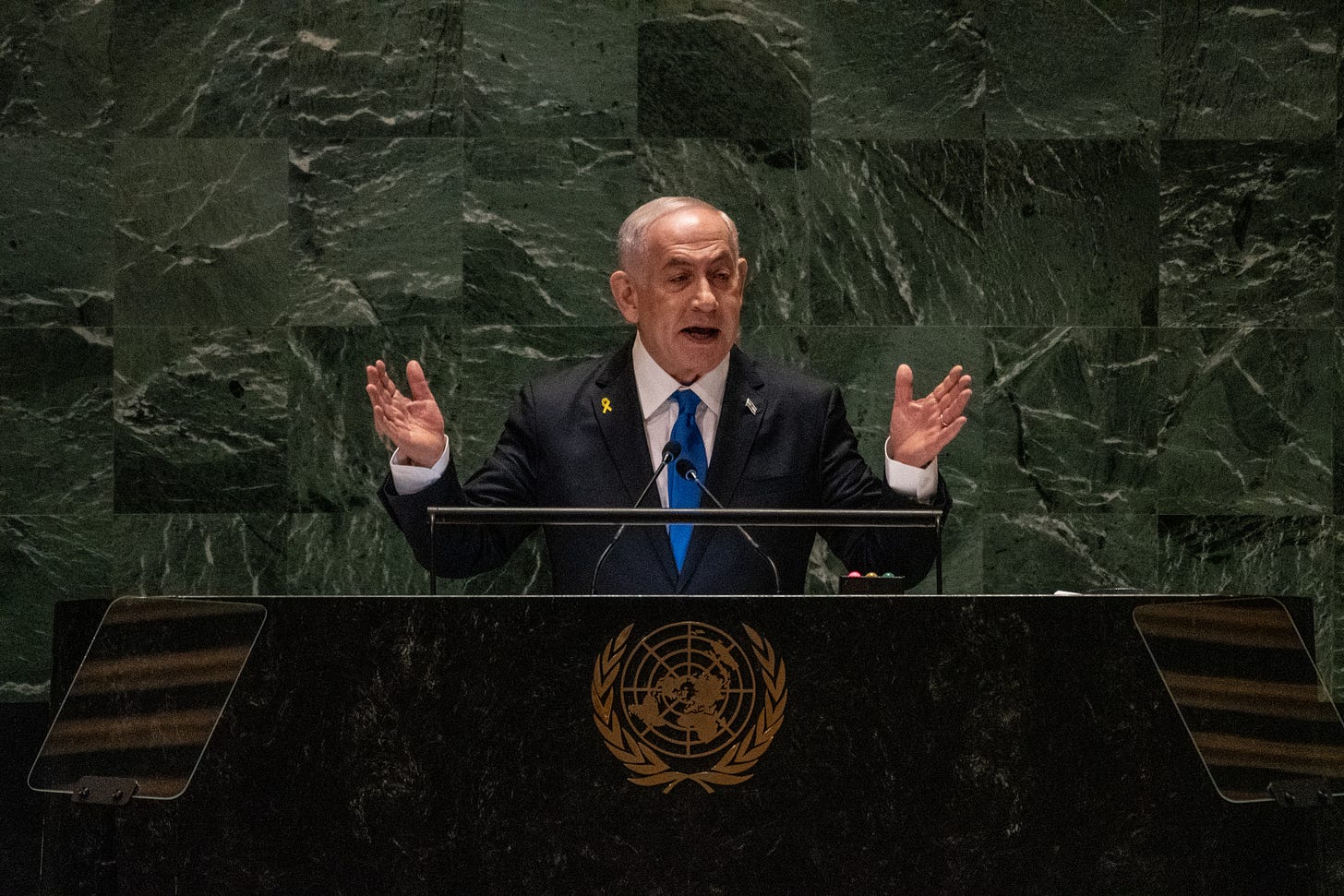 Israel and its flunkies consistently complain that Israel is held to a different standard than other states. The assertion is factually correct, though not in the manner intended. No state since the Second World War, and this includes the United States, Soviet Union, Russia, and China, has enjoyed both the impunity and freedom from criticism enjoyed by Israel. It was hardly a taboo to condemn the US wars against Vietnam or Iraq, the Soviet war in Afghanistan, Russia’s wars in Chechnya or Ukraine, or China’s domestic policies. By contrast, the prominent politicians who dared to explicitly condemn Israel for its murderous 1982 invasion of Lebanon, for example, can be counted on the fingers of an amputated hand. Israel likes to complain that the United Nations, which in 1947 adopted the critical decision to establish a Jewish state in Palestine, is an anti-Israeli organization and even one whose primary purpose is to promote an anti-Israel agenda. Yet, with the exception of the veto-wielding members of the UN Security Council, no state in the world body’s history with a record even remotely similar to Israel’s has systematically escaped sanction and condemnation. The former Rhodesia, South Africa’s former white-minority regime, the former Yugoslavia, Sudan, Iran, North Korea, Yemen, and Myanmar, to name but a few, would like nothing better than to be in Israel’s exalted international position. Zero economic sanctions, zero arms embargoes, zero UN-mandated criminal tribunals, zero anything with practical consequences. The same could be said for Israel’s nuclear arsenal. Iran has been subjected to decades of Western and UN sanctions on the pretext that these are required to prevent it from developing nuclear weapons. Earlier this year, Washington supported and participated in an Israeli war against Iran, the claimed purpose of which was to destroy its capacity to weaponize its nuclear program. UN sanctions on Iran, lifted a decade ago, are at European urging almost certain to be re-imposed later this year. Unlike Iran, Israel has refused to ratify the Nuclear Non-Proliferation Treaty (NPT) and has possessed a nuclear arsenal since the 1960s. Western governments systematically refuse to even acknowledge that this arsenal exists, let alone attach even a single consequence to Israel’s possession of hundreds of nuclear weapons and advanced delivery systems. Most recently, Germany knowingly provided Israel with nuclear-weapons-capable submarines and subsidized much of their cost. Ensuring a permanent Israeli nuclear monopoly in the Middle East while simultaneously refusing to acknowledge its existence is the West’s undeclared policy. Russia and China have voted in favor of Chapter VII Security Council resolutions against not only Iran but also North Korea. And then there is, of course, Iraq, sanctioned to the tune of hundreds of thousands of dead long after it ceased to have any WMD. By contrast, Israel’s nuclear arsenal, now more than half a century old, has never even been discussed as a council item. At the International Criminal Court (ICC), the 2023 indictment of Russian President Vladimir Putin and warrant for his arrest did not produce an international crisis. The Russian leader threw a fit, took it in his stride, avoided visiting certain countries, and that was the end of it. The Court’s 2024 indictment of two Israeli leaders has, by contrast, produced an ongoing, concerted campaign to dismantle the court wholesale. Hungary has withdrawn from the ICC. Greece, Italy, and France have effectively repudiated the Rome Statute and renounced their treaty obligations by repeatedly permitting international fugitive Benjamin Netanyahu to traverse their airspace. Most recently, Little Marco for a Big Israel sanctioned the three leading Palestinian human rights organizations on the grounds that they were cooperating with the Court. Any organization with the temerity to hold Israel to the same standards applied to others must be destroyed – by any means necessary. I recently had dinner with an individual who has, for many years, been teaching at a British university. Almost immediately after the October 7, 2023, attacks, the university administration sent a communication to all staff warning them to be careful about how they expressed themselves about this issue. No similar communication had ever been received about any other issue, whether foreign or domestic. Not Iraq, not the climate protests, not government austerity policies, not even the major terrorist attacks Britain has experienced in recent years. It seemed to me clear that the warning was meant to instill fear and stifle discussion about causes and consequences, just as the campaign against freedom of expression in US universities has far exceeded anything witnessed during the Vietnam or Iraq wars, wars in which the US was directly involved and lost thousands of lives. What has changed during the Gaza Genocide is that the taboo on criticism and condemnation of Israel – the taboo on open discussion of the nature of the Israeli state and its policies – has been irrevocably shattered. Individuals, public figures, and increasingly politicians as well, are no longer mortified by the spurious accusations that are inevitably flung their way if they dare to hold Israel to the same standards they have for their entire lives instinctively applied to other and similar regimes. Even the Washington branch office of Israel’s parliament, the US Senate, recently debated a partial arms embargo on Israel, a development inconceivable even three years ago. Jewish critics of Israel have played a pivotal role in these developments. Their words and actions have made a mockery of the tropes that criticism of Israel is, for all intents and purposes, criticism directed at Jews for being Jewish, and invalidated the Defamation League’s constant refrain that anti-Zionism is anti-Semitism. In so doing, they have given many others, often previously unfamiliar with the Middle East, and instinctively and rightfully opposed to being associated with hatred and discrimination, the confidence to judge Israel as a political entity like any other. Their numbers are also perceptibly increasing. In decades past, a Jewish anti-Zionist or public critic of Israel was often considered something of an anomaly, and their affiliation would be repeatedly noted as if they were a member of an endangered species miraculously sighted in Borneo. That is, for the most part, no longer the case. The schism between Israel and diaspora Jewish communities, or at least with significant sectors of the latter, is as real as it is visible. The same can be said for the growing rift between Jewish communities and the organizations that claim to represent them, but are in practice surrogates for the Israeli government. From Israel’s perspective, being judged by the same standards applied to others after a lifetime of impunity may well feel like being singled out for special treatment. But the reality is, of course, precisely the opposite. The goose is finally being treated like the gander and is no longer the unacknowledged elephant in the room. Hence, the ongoing meltdown, and the systematic resort to formal measures to shut down not only protest but also debate, and punish those who insist on speaking their minds. Mouin Rabbani is a Dutch-Palestinian researcher, analyst, and commentator specializing in Palestinian affairs, the Arab-Israeli conflict, and the contemporary Middle East. He is a senior non-resident fellow at the Middle East Council on Global Affairs Center and co-editor of Jadaliyya. Subscribe to his Substack and follow him on X (@MouinRabbani) for more of his writing. The views expressed in this article are the author’s own and do not necessarily reflect those of ZeteoCheck out more from Zeteo: 2025-09-08 14:03:17 UTC |
||
| 0 | 0 | 0 |
Meta suppressed research on child safety, employees say (Washington Post)
2025-09-08 14:00:23 UTC Washington Post |
||
| 0 | 0 | 0 |
Here's a Shocking Idea: Democrats Don't All Have to Sound Alike (Jill Lawrence/The Bulwark)
2025-09-08 13:35:00 UTC The Bulwark |
||
| 0 | 0 | 0 |
Trump Is a Weak and Failing President, and It's Time to Say So (Greg Sargent/New Republic)
2025-09-08 13:35:00 UTC New Republic |
||
| 0 | 0 | 0 |
How JPMorgan Enabled the Crimes of Jeffrey Epstein (New York Times)
2025-09-08 13:20:00 UTC New York Times |
||
| 0 | 0 | 0 |
RFK Jr. Touted a CDC Biosurveillance Program That Doesn't Appear to Exist Yet (NOTUS)
2025-09-08 12:45:00 UTC NOTUS |
||
| 0 | 0 | 0 |
The Untold Saga of What Happened When DOGE Stormed Social Security (Eli Hager/ProPublica)
2025-09-08 11:45:00 UTC ProPublica |
||
| 0 | 0 | 0 |
'I'm Gonna Punch You in the F--ing Face': Scott Bessent Threatens an Administration Rival (Rachael Bade/Politico)
2025-09-08 11:10:00 UTC Politico |
||
| 0 | 0 | 0 |
Treasury secretary says U.S. and European Union must partner to 'collapse' Russian economy (Alexandra Marquez/NBC News)
2025-09-08 10:50:00 UTC NBC News |
||
| 0 | 0 | 0 |
TODAY: Bring Your Questions to Mehdi for Zeteo’s First ‘Ask the Editor!’Ever wonder how we do what we do here at Zeteo? What’s the thinking behind the segments we produce and the articles we publish? Or how Mehdi manages to host a podcast, conduct tough interviews, and do so many extra media appearances all while trying to get seven (okay, maybe six) hours of sleep each night? And are you interested in hearing about the stories we’re covering ahead of each week? Well then get excited, because starting today, Zeteo will be launching our weekly ‘Ask The Editor’ series! Every Monday, ALL of Zeteo’s subscribers will be able to tune in on YouTube, on the Substack app, and at zeteo.com at 11am ET / 8am PT / 3pm GMT to ask Zeteo’s Editor-in-Chief Mehdi Hasan your questions about his work, Zeteo, and all that’s going on in our crazy news cycle. And as an added bonus: Zeteo’s very own political correspondent Prem Thakker will be moderating the conversation. So join us TODAY as Mehdi takes your questions and Prem’s. We’ll see you there! (And if you’re not a paid subscriber to Zeteo yet, what are you waiting for? Sign up today and help fund independent journalism.) 2025-09-08 10:02:43 UTC |
||
| 0 | 0 | 0 |
US Migrant Raid Jolts South Korea, Stirs Investor Anxiety (Bloomberg)
2025-09-08 03:30:00 UTC Bloomberg |
||
| 0 | 0 | 0 |
Perils of the Pentagon's Plan to Use Military Lawyers to Adjudicate Immigration Cases (Ilya Somin/Reason)
2025-09-08 02:15:00 UTC Reason |
||
| 0 | 0 | 0 |
Trump Is Met With Mostly Boos at U.S. Open as Security Delays a Match (David Waldstein/New York Times)
2025-09-08 01:15:01 UTC New York Times |
||
| 0 | 0 | 0 |
Russia Steps Up Disinformation Efforts as Trump Abandons Resistance (Steven Lee Myers/New York Times)
2025-09-08 00:45:00 UTC New York Times |
||
| 0 | 0 | 0 |
Russia Steps Up Disinformation Efforts as Trump Abandons Resistance (Steven Lee Myers/New York Times)
2025-09-08 00:45:00 UTC New York Times |
||
| 0 | 0 | 0 |
Americans face biggest increase in health insurance costs in 15 years (Patrick Temple-West/Financial Times)
2025-09-07 22:40:00 UTC Financial Times |
||
| 0 | 0 | 0 |
Trump's US Open visit sparks boos and long security lines (Will Weissert/Associated Press)
2025-09-07 22:15:00 UTC Associated Press |
||
| 0 | 0 | 0 |
Postal traffic to US drops more than 80% after trade exemption rule ends, UN agency says (Chandelis Duster/NPR)
2025-09-07 22:05:00 UTC NPR |
||
| 0 | 0 | 0 |
Johnson backs off claim that Trump was an 'FBI informant' in Epstein case (Washington Post)
2025-09-07 21:45:00 UTC Washington Post |
||
| 0 | 0 | 0 |
Kennedy, Rejecting Data, Fuels Distrust of His Own Agencies (Sheryl Gay Stolberg/New York Times)
2025-09-07 20:45:01 UTC New York Times |
||
| 0 | 0 | 0 |
A decades-long peace vigil outside the White House is dismantled after Trump's order (Associated Press)
2025-09-07 20:25:01 UTC Associated Press |
||
| 0 | 0 | 0 |
Donald Trump Booed at U.S. Open Men's Final Match (Todd Spangler/Variety)
2025-09-07 19:45:00 UTC Variety |
||
| 0 | 0 | 0 |
America's Perón — Decades of personalist rule turned Argentina into a global economic laughingstock. (Scott Lincicome/The Atlantic)
2025-09-07 19:25:01 UTC The Atlantic |
||
| 0 | 0 | 0 |
Finding My Grandmother’s Ma’amoul Cookie in Brooklyn: A Story of Palestinian SurvivalOn a brisk fall Saturday morning at our local farmers market in Brooklyn, mere weeks after my family and I had settled into our new home, I found it. A cookie. Not just any cookie, but a ma’amoul. Versions of these delicate, date-filled pastries from the Middle East can be found in American bakeries, but this ma’amoul was different. It looked exactly like my Teta’s, my Palestinian grandmother’s: small, compact, sprinkled with powdered sugar and perfect imprints pressed into the dough. I liked to fancy myself a ma’amoul connoisseur, having devoured so many as a child. I was always sneaking one more when no one was looking, and I had no hesitation dismissing any imitation with precise criticism whenever it fell short of hers. There were many reasons for our move to the East Coast from Los Angeles. But what pushed us to act suddenly and decisively was our children. After October 7, it began with a barrage of words on social media and school pickups. Not at us, but around us, and then directly at them. I got a call from the school nurse one afternoon: my 8-year-old daughter had thrown up. When I arrived, she told me that a group of kids had called me and my mother “terrorists.” My 6-year-old son came home confused, asking why his friends kept wondering why he wasn’t “on the side of the good guys.” These weren’t just idle questions. They came from classmates who had clearly absorbed the conversations unfolding in their homes – conversations in which lines had already been drawn. My children were suddenly expected to justify their identities, to declare allegiance. Then came my son’s seventh birthday party a few months later. As the kids laughed and played, I looked up to find myself encircled by a group of mothers peppering me with questions about where my parents were born or how I chose my kids’ names (both are Arabic). Looking around for my husband, I wasn’t interested in turning my sons’ party into a debate. And when I glanced across the yard, I saw another mother had pulled my daughter aside, smiling as she told her, “Your names are Hebrew.” That night, my daughter asked me, point-blank: “Where was Teta born? Are we Israeli? Why can’t we say who we are? Why are people saying there is no such thing as a Palestinian?” She had always been gregarious, effortlessly at ease with others. But now she, too, was shrinking in the face of suspicion. And for the first time, they both began demanding answers about who they were allowed to be. We realized then that the silence we had thought might protect them had only made them more vulnerable. They needed us to speak, to give them a place where they didn’t have to erase themselves just to belong. And around us, it wasn’t just children absorbing the fear. Our neighborhood bookstore – nestled in an open-air mall that had been a fixture of my childhood – was forced to shut down for a day after it carried a book that included a historical overview of Hamas and its rise. A group of mothers stormed in, ambushed the young clerk (who identifies as Jewish), filmed themselves mocking and taunting the clerk, and then proudly posted the footage online. The store was forced to close temporarily, and so what did the mothers do? They hoisted an Israeli flag on the window and declared it “a Jewish neighborhood.” There was no room left for quiet, for code-switching, or for pretending. Not for us. And certainly not for our kids. When I was their age, in the same community, the hostility wasn’t overt – it was present, but in subtler ways. I learned to sense it in glances, in awkward pauses, in the questions that never quite sounded like questions. My American peers had been taught to fear people like my mother. People like me. I wasn’t taught to shrink, but I taught myself. As a third-culture kid who wanted to fit in, I learned to soften my identity to make others feel comfortable. But inside our home, there was no such thing as neutrality. My father, a Christian Armenian, was born and raised in Beirut by a family who had fled the Armenian Genocide – still denied by some, but a truth etched into our family’s history. My mother, a Muslim Palestinian, was born into the Nakba of 1948, forcibly displaced from her village along with over 700,000 other Palestinians. When they met at the American University of Beirut, civil war broke out, and they were forced to flee once again. War and exile weren’t events in our family history; they were its atmosphere. I grew up steeped in the stories. One summer, I’d be sitting at my Teta’s table in Amman, Jordan, shutters drawn against the heat, listening to my aunties and mom conjure memories of their home in Palestine – a longing and pain I registered but couldn’t quite grasp. Another summer, I might be with my cousins in Beirut, Lebanon, where their living rooms buzzed with men slapping down backgammon pieces and debating politics. Cigarette smoke hung in the air. I never thought it was strange that none of my relatives lived in the same country. Scattered across Jordan, Lebanon, and the Gulf – I understood instinctively that exile wasn’t a singular event. It was a condition. And when we returned to the United States, I always played my part. I tucked away the grief I didn’t yet recognize as grief and became the American girl who fit in. I laughed at the right jokes; I learned how to mold myself to be liked. And if I were to be honest, I enjoyed being a people pleaser a little too much. I buried the truth – that my parents carried trauma like scar tissue – and did what children do best: I adapted. My children didn’t have that context. They didn’t know how to read between the lines or preempt the assumptions. Their instincts weren’t shaped by fear or the need to blend in. When the world shifted around them, they didn’t know how to react. They looked to me for cues, but I had spent my life learning to go quiet. And for the first time, I could feel their disappointment in me. Everything changes when you are in charge of shaping another person’s worldview. Raising them in a hostile environment was something I did not want to do. Preserving their sense of humanity and ensuring they grew up in a community where they could be fully seen became my priority. I had the privilege and agency that my immigrant parents didn’t. I was determined to use it. The RecipeAt the farmer’s market, I bought the ma’amoul. I broke off a piece and took a bite, and for a moment, I was no longer in Brooklyn. I was in my childhood kitchen, my fingers sticky with date filling. It tasted just like my Teta’s cookie. In fact, it tasted exactly like my Teta’s cookie. The baker, Zeena, was busy with customers, so I struck up a conversation with her mother, who stood quietly at the back of the stall. She was also Palestinian, and when I mentioned my mother, she asked for her maiden name. Then she said something that made my breath catch in my throat: “We’re related.” I stood there, surrounded by the hum of the market, stunned. The words hung in the air, impossible to grasp all at once. I smiled, nodded, said something polite, but I couldn’t fully absorb it. Later, at home, I FaceTimed my mother. When I told her, she lit up. Through all the sorrow my grandmother had endured, it was her grandmother who had been the source of her deepest joy. Discovering that Zeena came from that same branch of our family – one that had brought so much happiness during so much loss – stayed with me. This wasn’t just a cookie. It was a living thread to a past that might have disappeared completely, if not for a single conversation. To understand the significance of that ma’amoul, you have to understand my grandmother’s story, and my mother’s too. My Teta was displaced twice. The first time was in 1948, during the Nakba. She fled her village, Qaqun, under heavy bombardment. As the village, a place nestled in the rolling hills of Palestine and known for its fertile land and diverse agricultural production, was overtaken and occupied, my Teta needed to get to the hospital in Nablus to deliver her first child, my mother, where my grandfather was the head doctor. Amidst the threat of violence, she made it to the bustling city, where she could safely deliver her. But my Teta never returned to the only home she had known. That night, it was gone. Their land, their home, their village – erased. They rebuilt in another town, Tulkarm, a beautiful place not far from the Mediterranean, which benefits commercially from its central location. 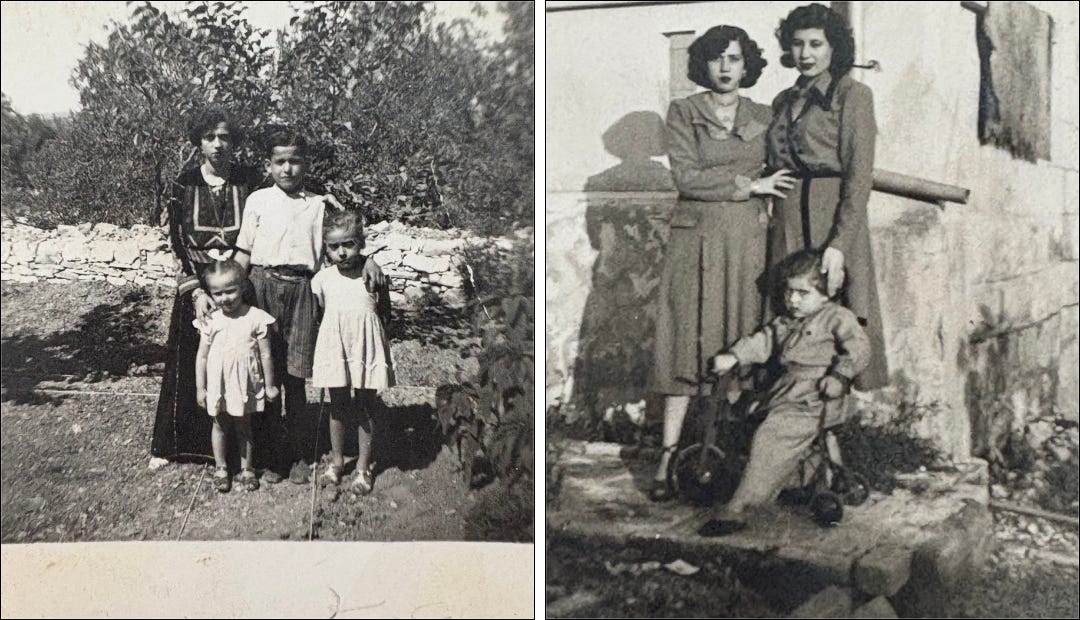 My grandfather, well-educated and well-connected, believed what so many Palestinians came to believe: that education was the last defense. He sent all three of his daughters to boarding school, first in Ramallah, then to a German-run school in Jerusalem. My mother was just 5 years old when she was sent off in 1953. The opportunities were real. But the cost was steep: separation from her family (and, in many ways, her culture) at such a young age, a price she would carry for the rest of her life. Then came 1967 and what is referred to as the Six-Day War. My mother was already studying at the American University of Beirut when it began. Her younger sisters were placed in a car by their boarding school administration and sent home to Tulkarm. Along the way, the driver was forced to stop on the roadside to shield my young aunts as bullets tore past them. They eventually reached my Teta’s house, where my great-grandmother was also living at the time. That night, Israeli soldiers came to the door and forced all of them to leave at gunpoint. At least four generations of women have been making the same ma’amoul cookies … A recipe passed down through generations, shaped by displacement and survival. The journey that followed was brutal. Soldiers tossed candy at the children’s feet – a grotesque spectacle meant to humiliate. They walked 14 miles to Nablus, to my great-grandmother’s family home (Zeena’s family home). It is from this story that I learned my Teta descends from the same maternal line as Zeena’s grandmother. At least four generations of women have been making the same ma’amoul cookies: the ones I grew up eating, the ones Zeena learned to make from her Teta, and the very same I bit into at the farmer’s market just a year ago. A recipe passed down through generations, shaped by displacement and survival. More Than a Sweet SurpriseI’ve been writing this essay for almost a year. I’d stop and restart it every time something new appeared in the news – another massacre, another statistic to update. I kept wondering: what will resonate more? Stating that this is the largest cohort of child amputees in history? That every person in Gaza is under threat of starvation? Or that children are being deliberately shot in the head, spine, and genitals? It’s nearly impossible to process what we’re witnessing in real time. But perhaps the most jarring part is the hyper-normalization of a live genocide, combined with the gaslighting from corporate media, politicians, and peers. Add to that: the scroll. A photo of friends on a beach, followed by an image of a child’s insides. Fatima Bhutto captured this moment with haunting precision in a recent Zeteo piece, underscoring that more babies will have starved to death in Gaza by the time you even read her essay... “But we will remember,” she asserts. Watching it all unfold has unearthed a longing for home I can’t quite name. Not a physical place, but the warmth of my Teta’s cooking, the cadence of her voice, the love and joy our culture has always offered. I used to love watching her knead dough, then dust each cookie with powdered sugar. She always made sure I got my share, sneaking extras to me even when my mother told her to stop. Her eyes were always heavy with sadness – something her American granddaughter couldn’t understand at the time. But now I do. As images from Gaza flood my phone, I can’t look away. As a Palestinian mother, daughter, and granddaughter, the grief is everywhere. It haunts my every breath. It engulfs my daily life. And then come the out-of-body moments – like when I see photos of my daughter at summer camp, running free among trees and laughter, while other children – her bloodline – are being starved, mutilated, and erased. I spent much of my life shaped by Western liberalism and the illusion of its moral superiority. It was there in my graduate program, in my career in foreign policy and media. But these past two years have shattered whatever myths I once clung to. The disillusionment had been building – but this was different. This was a collapse. Complete erasure will never be possible – because we endure. And we will remember. Not just in body, but in memory, in story, in taste. Death and destruction weren’t distant stories – they were, and continue to be, livestreamed onto our phones. American tax dollars fund the planes and bombs massacring my people. Colleagues I once worked alongside – of all political stripes – calling the shots at the highest levels of government, deciding the fate of people who could have been my family. The joy in finding a cookie at a Brooklyn farmers market, especially as Palestinians in Gaza struggle to find flour, or rice, or water, may seem trivial. But when the world is determined to erase your identity, when your people are being ethnically cleansed, finding your Teta's cookie isn’t just a sweet surprise. It is proof of survival. The unrelenting dehumanization and collective punishment have made Palestinians like me more united than ever. Complete erasure will never be possible – because we endure. And we will remember. Not just in body, but in memory, in story, in taste. Sometimes, survival looks like biting into ma’amoul at a farmers market in Brooklyn…and finding your grandmother again. Nadine Apelian Dobbs is a policy, strategic communications, and public affairs adviser. She has held leadership positions in foreign policy and social change organizations. The views expressed in this article are the author’s own and do not necessarily reflect those of ZeteoCheck out more from Zeteo: 2025-09-07 19:05:35 UTC |
||
| 0 | 0 | 0 |
RFK Jr. says anyone who wants a covid shot can get one. Not these Americans. (Washington Post)
2025-09-07 18:55:01 UTC Washington Post |
||
| 0 | 0 | 0 |
CBS News poll: On Trump deploying National Guard, divisions over impact on crime, rights (Anthony Salvanto/CBS News)
2025-09-07 16:35:01 UTC CBS News |
||
| 0 | 0 | 0 |
What We Know About the Hyundai-LG Plant Immigration Raid in Georgia (Chris Hippensteel/New York Times)
2025-09-07 16:35:01 UTC New York Times |
||
| 0 | 0 | 0 |
JFK grandson Jack Schlossberg takes step towards run for Congress (Andrew Solender/Axios)
2025-09-07 16:25:00 UTC Axios |
||
| 0 | 0 | 0 |
Russia strikes Ukrainian government building for first time, in largest air attack of war (CNN)
2025-09-07 15:50:01 UTC CNN |
||
| 0 | 0 | 0 |
Seoul Says It Reached Deal With U.S. to Release Workers Detained in Hyundai Raid (Jiyoung Sohn/Wall Street Journal)
2025-09-07 14:35:00 UTC Wall Street Journal |
||
| 0 | 0 | 0 |
September 6, 2025 — Today the social media account of President Donald J. Trump posted ... (Heather Cox Richardson/Letters ...)
2025-09-07 14:25:00 UTC Letters ... |
||
| 0 | 0 | 0 |
Poll: Trump's job ratings stay negative; Americans express strong support for vaccines (NBC News)
2025-09-07 14:25:00 UTC NBC News |
||
| 0 | 0 | 0 |
Trump's team plans harder test for U.S. citizenship — and more leeway to reject applicants (Brittany Gibson/Axios)
2025-09-07 14:20:00 UTC Axios |
||
| 0 | 0 | 0 |
Trump Tried to Kill the Infrastructure Law. Now He's Getting Credit for Its Projects. (Richard Fausset/New York Times)
2025-09-07 13:40:00 UTC New York Times |
||
| 0 | 0 | 0 |
Stop Funding Trump's Takeover (Ezra Klein/New York Times)
2025-09-07 13:35:00 UTC New York Times |
||
| 0 | 0 | 0 |
Trump Tramples Congress's Power, With Little Challenge From G.O.P. (New York Times)
2025-09-07 12:30:00 UTC New York Times |
||
| 0 | 0 | 0 |
Epstein Made Me Dress Like a Sexy Nurse for Trump: Model (Jack Silvers/The Daily Beast)
2025-09-07 06:55:51 UTC The Daily Beast |
||
| 0 | 0 | 0 |
LAPD ends protection of former Vice President Kamala Harris amid criticism over diverting cops, sources say (Richard Winton/Los Angeles Times)
2025-09-07 03:45:01 UTC Los Angeles Times |
||
| 0 | 0 | 0 |
'I escaped a Russian prison — only to end up in an American jail' (George Grylls/The Times)
2025-09-07 02:40:00 UTC The Times |
||
| 0 | 0 | 0 |
Donald Trump's economy falters as US jobs growth grinds to a halt (Financial Times)
2025-09-07 01:25:01 UTC Financial Times |
||
| 0 | 0 | 0 |
USTA asks broadcasters to censor reaction to Donald Trump's attendance at U.S. Open (The Athletic)
2025-09-07 01:15:01 UTC The Athletic |
